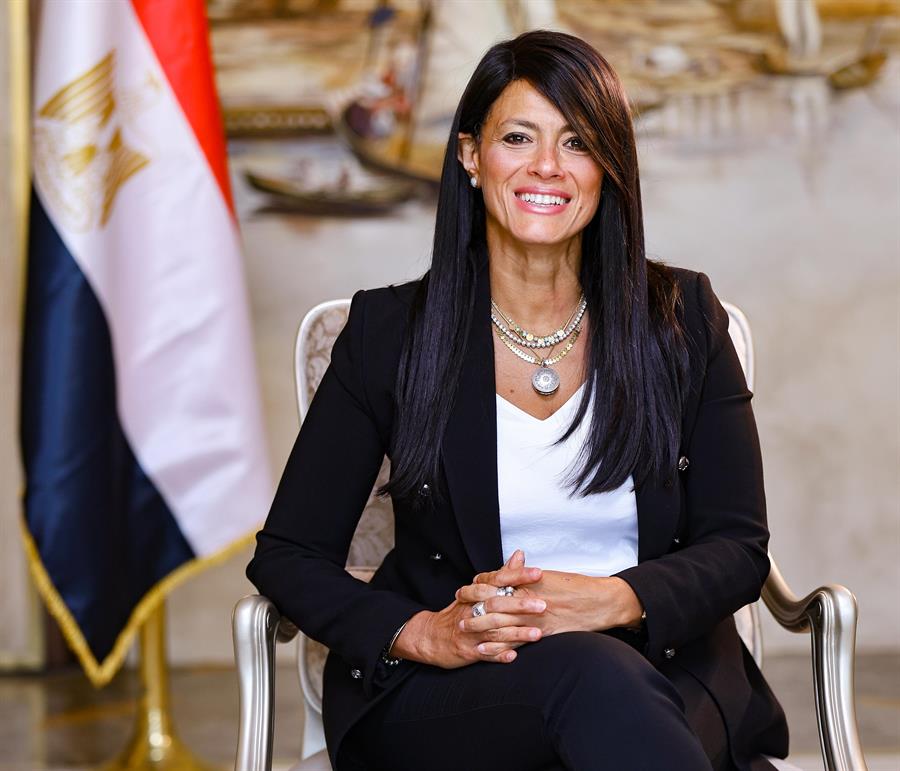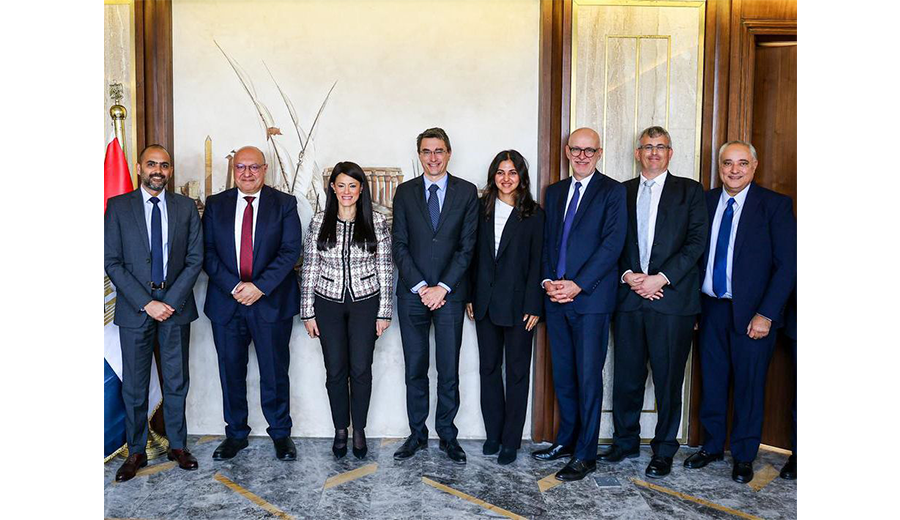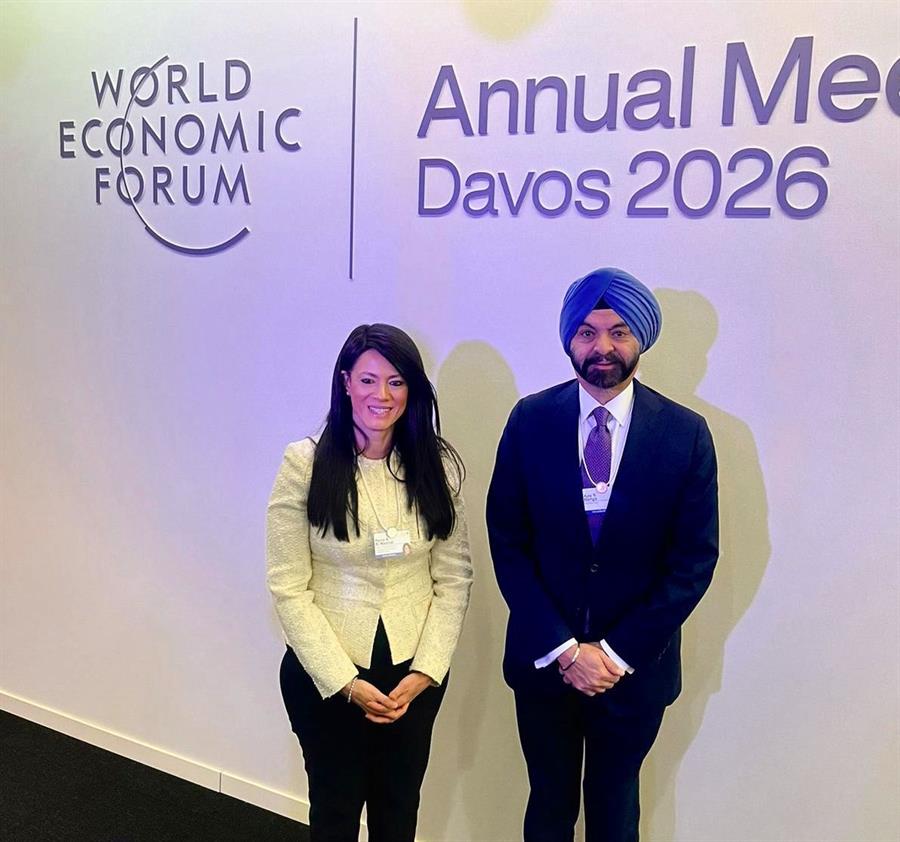Minister of Planning and Economic Development: Egypt is the first country in the world to launch a report on "financing sustainable development" at the national level

13 February 2022
H.E. Dr. Hala El-Said, Minister of Planning and Economic Development, confirmed that the “Financing for Sustainable Development in Egypt” report is the first of its kind globally, as only a report on the state of financing for development is issued globally; While a similar report has not been issued at the national level. This report was prepared under the umbrella of the Arab League. Egypt was chosen to be the first country in preparing this report because of its leadership and developmental weight in the Arab region. After that, the project will be disseminated to some Arab countries, in preparation for the preparation of a report on financing for development in the Arab region.This came during her speech at the launch session of the "Financing Sustainable Development in Egypt" report, which was held within the activities of the fourth edition of the Arab Sustainable Development Week under the title "Together for Sustainable Recovery".El-Said explained that despite the developmental achievements of the Egyptian state, at all levels, during the past years, most notably the success of the first phase of the National Program for Economic and Social Reform, which was launched in November 2016, and the resulting stability of macroeconomic indicators, as well as the start of implementation of the National structural reforms for the Egyptian economy. El-Said drew attention to the Egyptian government’s proactive launch of a comprehensive financial stimulus package, worth EGP 100 billion Egyptian (2% of GDP) to mitigate the impact of the crisis and expand the scope of social protection to support the most affected sectors, protect vulnerable groups and support the affected groups and promoting economic activities.
El-Said pointed out that the report is comprehensive, as it presents, in its thirteen chapters, an objective and in-depth analysis of a group of financing for development issues that significantly affect the achievement of the UN sustainable development goals. The report provides an analytical review of the various development and economic sectors and their impact on the development situation in Egypt. The report also contributes to shedding light on the efforts of the Egyptian state to mobilize and diversify financial resources to finance sustainable development projects in recent years, such as the establishment of the Egyptian Sovereign Fund for Investment and Development, the offering of sovereign green bonds, in addition to offering financing alternatives and innovative solutions to finance sustainable development and analyzing ways to maximize benefit. These include sustainable development bonds, blended finance, climate finance, and impact investing, as well as financial flows resulting from public-private partnerships, as one of the most promising mechanisms for financing development in Egypt.El-Said emphasized that the drafting of this report was based on the results of a continuous transparent dialogue with various local and international development partners, in confirmation and reinforcement of the participatory approach adopted by the government in its efforts to achieve comprehensive and sustainable development in various sectors.El-Said reviewed the most prominent efforts and projects adopted by the Ministry of Planning and Economic Development to promote innovative and sustainable financing policies, including working to improve public investment management and raise spending efficiency to maximize the use of available resources by expanding the application of "plans and budgets for programs and performance" and setting legislative and institutional frameworks that ensure the success of the experiment.She talked about raising the efficiency of the state's investment spending through the "integrated system for preparing and following up the investment plan", which represents a qualitative leap in the process of preparing and following up the investment plan through electronic connectivity, and through the three components of the system (preparation of the plan; additional appropriations and transfers; and office and field follow-up).The awarding bodies are empowered to submit proposals for the annual investment plan, follow up on projects, and request additional credits and transfers electronically through the system.The ministry has built capacities and qualified the necessary cadres by training the authorities at the republic level on how to use the three components of the system, in addition to creating a “financing equation” to ensure a fair distribution of public investments at the governorate level, taking into account addressing the development gaps between the Egyptian governorates.
El-Said pointed to the link between the annual investment plan of the Egyptian state and the UN goals: to evaluate and analyze the volume of investments directed to achieving the UN goals, and the resulting discovery of new investment opportunities and raising the efficiency of directing investments so that they are based on the identified investment gaps and priorities.El-Said talked about the project of the financing strategy for the sustainable development goals in Egypt in cooperation with the Joint Sustainable Development Goals Fund (SDG Joint Fund): which aims to provide and determine the cost of achieving both Egypt’s Vision 2030 and the United Nations sustainable development goals, in addition to evaluating the current scene, and trends of financing direct and indirect flow.El-Said referred to the efforts to promote and develop effective public-private partnership policies (PPP): increasing the contribution of the private sector as a major factor in financing development in the implementation of major strategic projects through the development of the legislative and institutional framework supporting the partnership between the public sector by making amendments to the law regulating private sector participation In infrastructure projects, services and public utilities promulgated by Law No. 67 of 2010.These amendments aim to expand the business patterns carried out by the private sector in infrastructure and public services projects, to develop new methods of contracting commensurate with the nature of the projects offered for partnership, and to set specific controls and criteria for selecting projects proposed for participation with the private sector.El-Said highlighted the "Decent Life" initiative and its role in the development of the Egyptian countryside, stressing that it is a pioneering development experience, achieving the seventeen goals of sustainable development, explaining the importance of settling the sustainable development goals in the various governorates.El-Said added that to diversify sources of funding and in line with the Egyptian state's orientation towards a green economy, especially with its hosting of the Conference of Parties to the upcoming United Nations Climate Change Convention COP27, Egypt came as the first country in the Middle East and North Africa to launch green bonds that focus on financing expenditures related to green and environmentally friendly projects.El-Said shed light on the role of the Ministry of Planning and Economic Development, as the government coordinator for the drafting of the report "Financing for Sustainable Development in Egypt", which is an independent, non-governmental report prepared according to a participatory approach, which came to monitor the serious economic and social reforms that have been carried out and to reflect what has been implemented Concrete development achievements on the ground.
El-Said concluded her speech by thanking the Arab League for its efforts to adopt this project, expressing thanks and gratitude to the abundant effort is made to come out with this national action in a manner befitting the Egyptian state.









